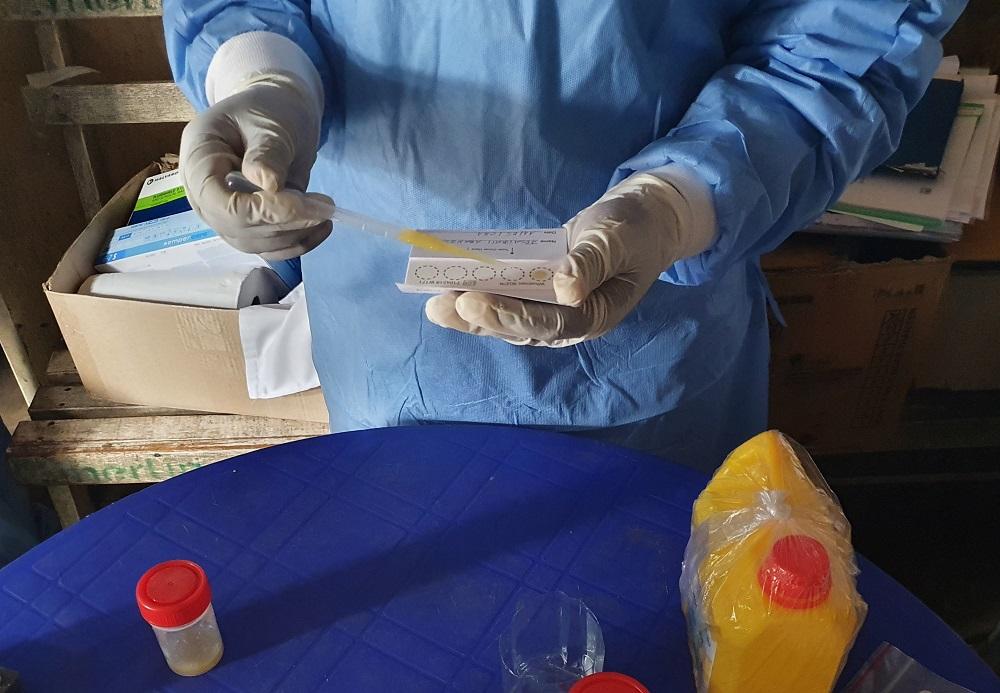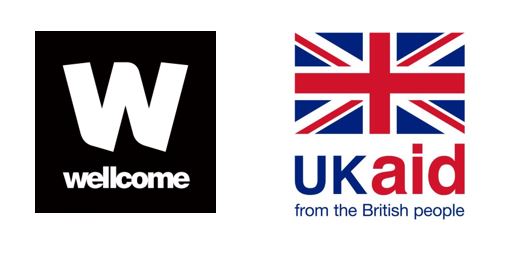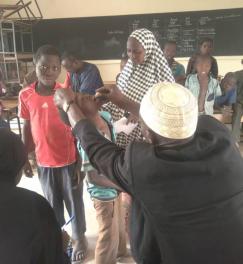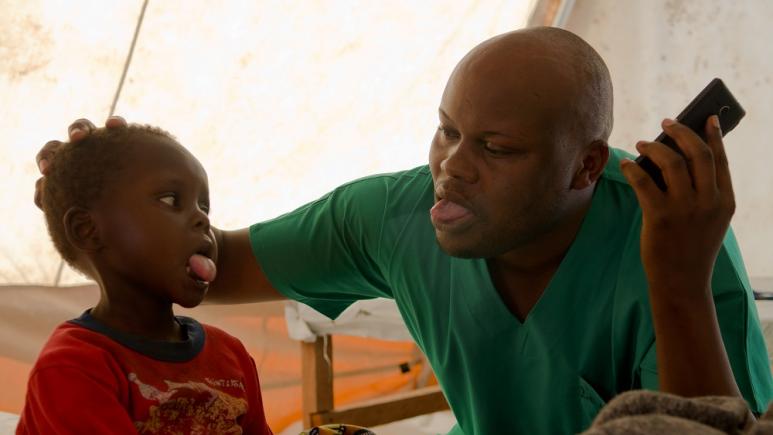Cholera: what impact for vaccination campaigns in DRC?
Since the first appearance of the Vibrio Cholerae bacteria in 1974 in the Democratic Republic of Congo (DRC), the country has been regularly plagued by cholera epidemics. The extent of the outbreaks varies, but only a rapid response can contain their spread. Some areas are also known to be endemic because the disease regularly reappears there.
The main epidemic reservoir of the bacteria is human beings. The disease is transmitted by drinking water or eating food contaminated by the stools of infected people. Once in the intestine, the bacteria secretes cholera toxin, which is responsible for the acute watery diarrhea and severe dehydration characteristic of the infection. Cholera affects vulnerable populations, living in unsanitary conditions, with insufficient sanitary structures, sometimes due to war or natural disaster.
Evaluating the impact of an oral vaccination campaign

Two oral vaccines, Shanchol™ and Euvichol®, are part of the global stockpile established by WHO with support from Gavi, the Vaccine Alliance. They are intended to support outbreak response and complement prevention and control measures put in place, following WHO recommendations and the roadmap to eliminate cholera by 2030. "Notably because of the small number of doses available, these stocks have been little used for preventive vaccination campaigns in areas where cholera is endemic," notes Anaïs Broban, epidemiologist at Epicentre.
However, some vaccination campaigns have already taken place in DRC, for instance in the lake regions in the east of the country, where new cases of cholera regularly appear. Other campaigns are already being considered.
"With a two-dose campaign targeting individuals over the age of one year and covering a large proportion of the population, it is expected that the incidence of the disease will be significantly reduced compared to the period prior to vaccination for at least three years. However, the real impact of these preventive vaccinations is still very poorly documented," says Anaïs Broban.
Epicentre has therefore just launched an operational study to evaluate the impact of a preventive oral vaccination campaign in cholera hotspots, thanks to a funding from the Wellcome, UK AID and the Foreign and Commonwealth Development Office, and in an integrated manner with MSF's activities and with the support of the DRC Ministry of Health and the National Program for the Elimination of Cholera and the Control of Other Diarrheal Diseases (PNECHOL-MD). "The objective of our project is to follow the incidence of cholera after vaccination for at least two years, and to better understand the impact of the vaccine on the level and characteristics of disease transmission," adds the epidemiologist.
An ambitious project for a disease that affects the most vulnerable
This study, which is taking place in Goma, has three components. First, the implementation of surveillance in 7 cholera treatment centers or units (CTC/UTC), the care structures set up during epidemics to isolate and treat cholera patients. Thus, these enhanced surveillance activities began in the city on May 11, 2021 under the supervision of Anaïs Broban.
Then several seroprevalence surveys will allow to determine the recent infection rates in the general population, and its evolution over the seasons.
Finally, a third component will consist in following up positive patients at home, but also other members of the household and evaluate the presence of Vibrio cholerae bacteria in the home environment. This part of the study will explore the modes of spread and transmission of the bacteria within the household (including asymptomatic) and differences in transmission in vaccinated and unvaccinated households. The study will also take place in a rural site in DRC.
Each year, an estimated 1.3 to 4 million people are infected with Vibrio Cholerae bacteria worldwide and 21,000 to 143,000 die from the disease (1). Cholera remains a global health threat.
For many years, Epicentre has been supporting MSF programs to improve the management of cholera patients and epidemic response strategies, as well as to prevent the occurrence of this disease. This study is a continuation of this work and should provide new knowledge on the impact of vaccination campaigns and the spread of the disease, which will be crucial in guiding disease control strategies.
Photo crédit : Choléra RDC Natacha Buhler/MSF & Anais Broban/Epicentre

Find out more about cholera
Find out more







